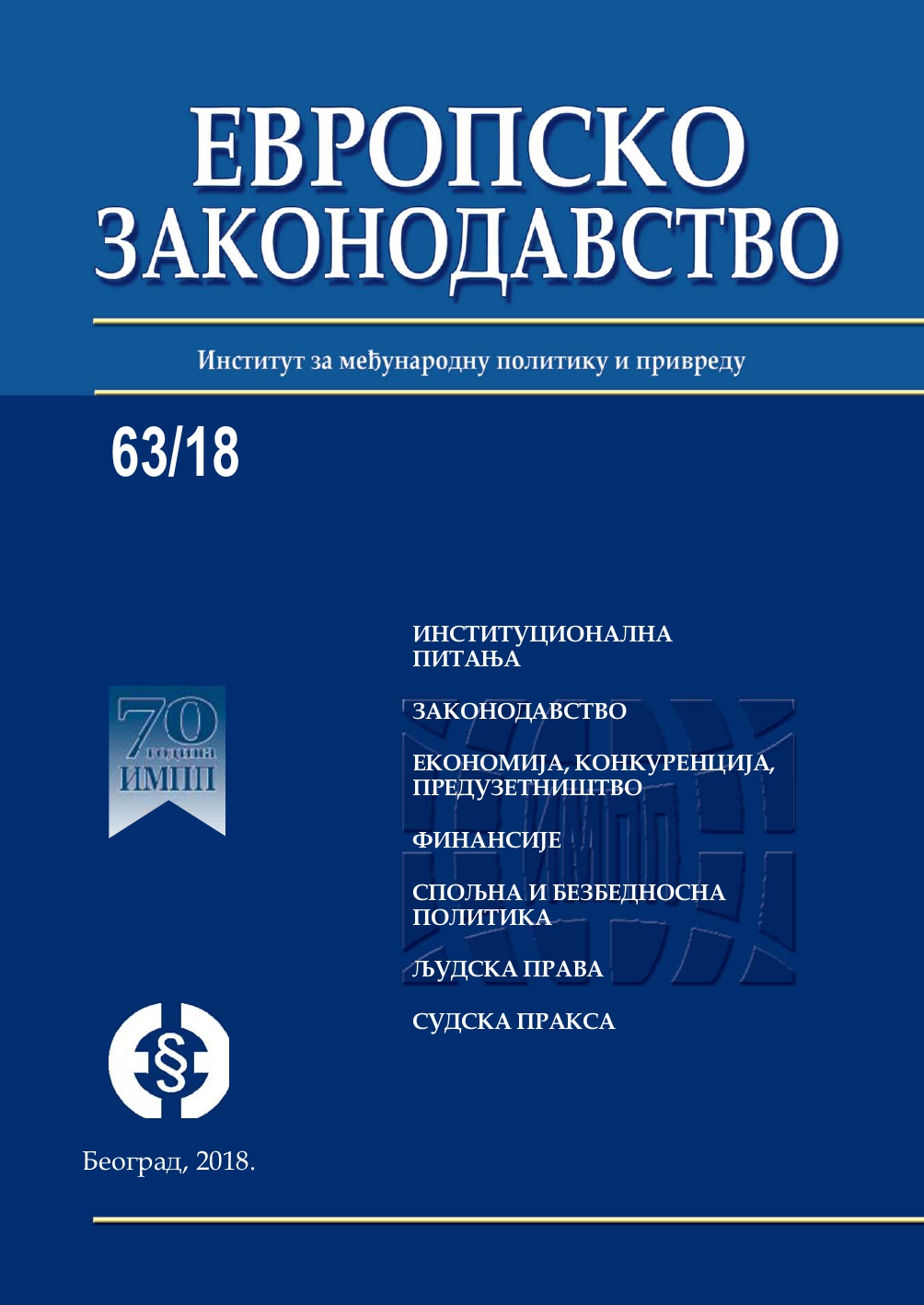Формални предуслови правне и безбедносне сарадње између Републике Србије и других држава Западног Балкана
Formal preconditions for legal and security cooperation between the Republic of Serbia and other countries of the Western Balkans
Author(s): Vojislav Jović, Dragan Manojlović, Zdravko PetrovićSubject(s): Politics / Political Sciences, EU-Legislation
Published by: Институт за међународну политику и привреду
Keywords: international treaties;international agreements;security;cooperation
Summary/Abstract: The inter-state cooperation, whether bilateral or multilateral, is one of the key factors which improves different areas of national states and makes them more efficient. From the standpoint of legal security cooperation and cooperation in the field of criminal and security issues, transnational cooperation contributes to a more efficient fight against crime and efficient resolution of certain issues in the national security of the signatory countries. The significance of the instrument of interstate cooperation in the Western Balkans, among other things, is particularly evident due to border crossing liberalization and the representation of the dual citizenship institute. These are some of the factors that favour the development of various forms of criminal activity, and provide opportunities for perpetrators of criminal offenses to relatively quickly and safely leave the territory of the State where the offense was committed. Hence, the formal legal regulation of interstate cooperation and assistance in criminal and security issues are extremely important. Starting from the main hypothesis that international treaties as formal legal prerequisites are essential for the establishment of inter-state cooperation in various spheres of social life, and directing the focus to the field of criminal justice and security cooperation, this paper presents some international legal standards in this area, along with a descriptive analysis of their most important provisions. From the analysis of certain international legal standards it seems, formally speaking, that they cover a significant part of the legal safety issues and that in the factual sense, the implementation of agreed issues is not too advanced. One of the reasons for this situation is certainly the fact that the countries of the Western Balkans are in transition, they are occupied by the process of integration into the European Union, and compatibility of their legal systems is not yet achieved. Areas covered in this paper are particularly related to: legal assistance in criminal matters (extradition, mutual execution of court decisions); protection of classified information; police cooperation; protection of human rights and fundamental freedoms; security; law enforcement; the Statute of limitations of criminal offenses; assistance in civil and criminal matters; illegal entry and residence; the fight against crime. The work concludes with the research which includes the types and forms of criminal legal aid and police cooperation which were carried out on the basis of signed contracts and agreements, as well as the assessment of their effectiveness.
Journal: Европско законодавство
- Issue Year: 2018
- Issue No: 63
- Page Range: 231-249
- Page Count: 19
- Language: Serbian

